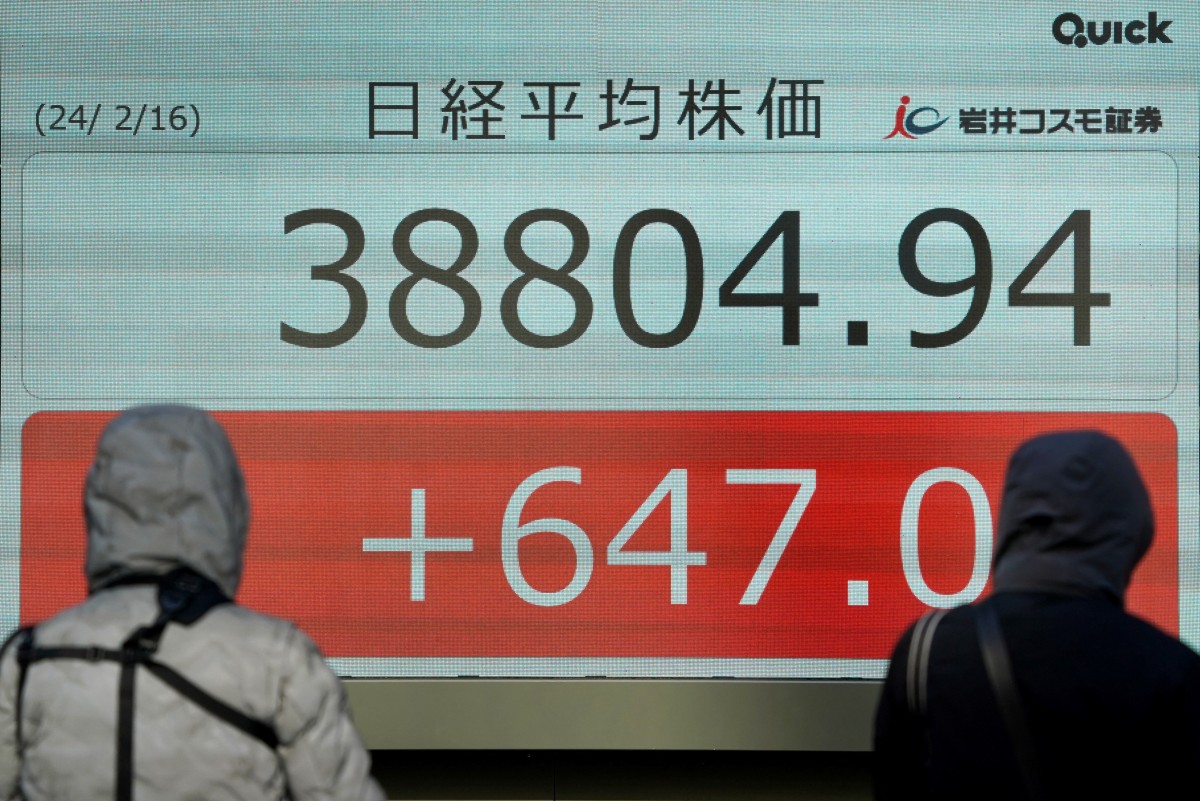London, United Kingdom – Europe’s stocks rallied Friday, with Frankfurt and Paris striking more record peaks after solid Asian gains, as investors shrugged off recessions in Britain and Japan before publication of key US data.
Wall Street had leapt Thursday after the US Commerce Department reported a larger-than-expected 0.8-percent decline in retail sales for January.
That renewed investor hope of an early interest rate cut from the US Federal Reserve, sending markets shooting higher.
“The weakness of yesterday’s US retail sales release have given market doves a new lease of life and allowed them to refocus on the likelihood of an early Fed rate cut,” Rabobank analyst Jane Foley told AFP.
“Risky assets are higher as a result,” she added.
London equities also jumped as investors drew comfort from a contrasting January rebound in UK retail sales, one day after gloomy news that Britain has entered recession.
UK retail sales volumes surged 3.4 percent in January, the fastest increase in almost three years, after sliding 3.3 percent in December, official data showed.
Sentiment was buoyed also by a jump in annual net profit at NatWest, which sent the UK bank’s share price up almost six percent.
Elsewhere, world oil prices slid after the Paris-based International Energy Agency warned of slowing global demand growth.
US and European stocks had rallied Thursday, with the broad-based S&P 500 up 0.6 percent to finish at an all-time high, along with Paris and Frankfurt.
London has marched higher despite official data showing Thursday the UK entered recession at the end of last year, as high inflation prolonged a cost-of-living crisis.
Japan also entered recession at the back end of 2023, according to data released Thursday, with the Asian nation overtaken by Germany as the world’s third-biggest economy.
In foreign exchange activity Friday, the dollar wavered as dealers awaited US producer prices data in the United States for the latest steer on inflation.
Figures released on Tuesday showing the US consumer price index slowed less than expected in January dealt a blow to hopes of an early interest rate cut by the Fed and had sent Asian indices mostly lower.
But investors returned to buying on expectations borrowing costs will be reduced later this year.
The producer price index “will be closely watched by markets and should drive the near-term direction for the equity and bond markets”, said Larry Tentarelli, chief technical strategist at Blue Chip Daily Trend Report.








